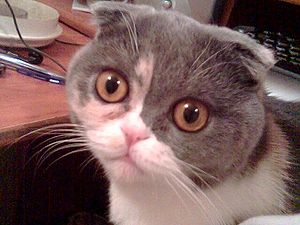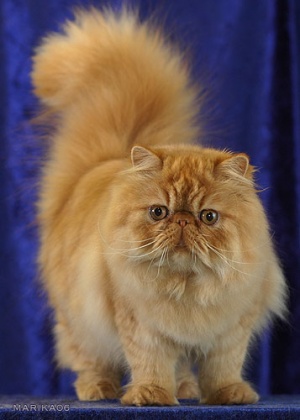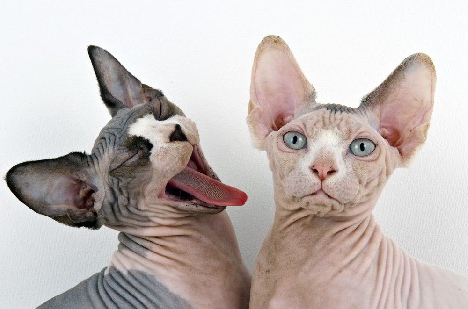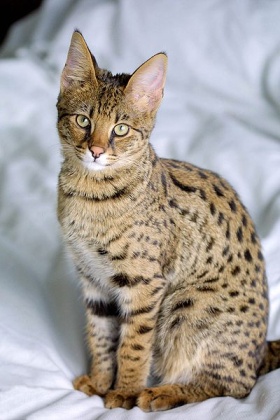 |
| Vital Statistics: |
| Place of Origin: China, Scotland |
| Coat Type: All colors of cat |
| Color: Siamese-like colors & markings |
| Temperament: affectionate, loyal, loves people, good with children & other pets |
Where does the Scottish Fold come from?
It seems a cat with folded ears was brought to Europe from China by an English sailor in the 1880s. Nothing more was heard of the cat. In 1961 a shepherd, William Ross found several kittens with folded ears in a neighboring farm in Perthshire, Scotland. Ross then began a breeding program with the aid of geneticist Pat Turner. The conclusion was that only one parent carrying the gene for the folded ear was necessary. Whether there is any connection to the cats brought from China is unknown. At present, more Scottish Folds are bred in the U.S. than in Britain.
What does the Scottish Fold look like?
The Scottish Fold is a short cat with a medium-size roundish body. It has a wide head and large nose. Eyes are large and round. The tail is medium to long, in proportion to the body, tapering and flexible. And of course the distinctive ears are small and fold forward and downward. The fold will begin to appear in kittens about 3 weeks old. The coat can be long or short and is dense. The coat colors are the same as the American Shorthair. Coat should be brushed regularly and the ears must be checked and cleaned often.
Does the Scottish Fold make a good pet?
The Scottish Fold is a very affectionate, loyal cat that craves human companionship. It is good with children and other pets and will adapt to any situation. The Scottish Fold has a gentle voice, very much like its personality. They like to sleep on their backs and often sit with legs stretched out and front paws resting on the belly.
Where can I adopt a Scottish Fold?
There are any number of purebred rescue organizations online. Be sure to check their policies regarding adoption.
Possible Health Issues
Ear problems, cardiomyopathy, osteochondrodysplasia (some bones are deformed), polycystic kidney disease.



